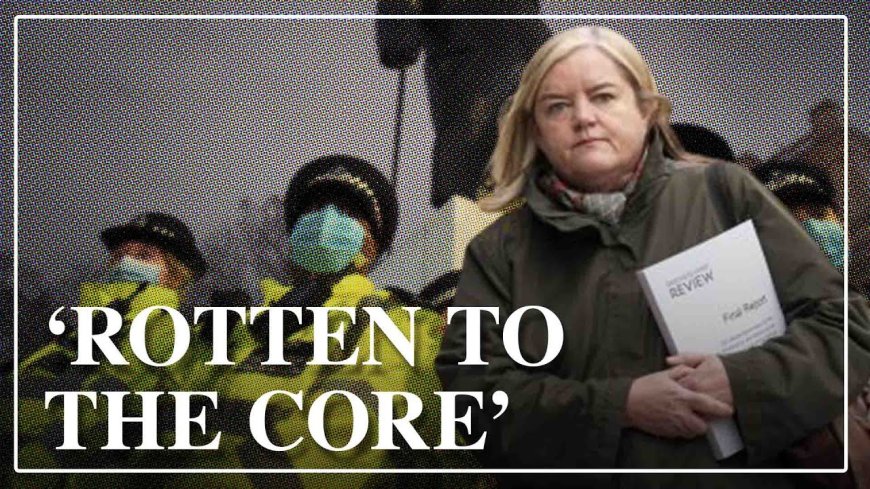The Casey report on The Met Police: “If these crimes don’t prompt reform, what will it take?”

Only two years ago, in March 2021, Sarah Everard was abducted, raped and
murdered by a serving Metropolitan Police Officer. With greater courage than I can ever imagine, Sarah’s mother, Susan Everard, told the Court in her victim impact statement that: “There is no comfort to be had, there is no consoling thought in the way Sarah died. In her last hours she was faced with brutality and terror, alone with someone intent on doing her harm.
The thought of it is unbearable. I am haunted by the horror of it…I am repulsed by the thought of what he did to Sarah. I am outraged that he masqueraded as a policeman in order to get what he wanted.”
The lifespan of this Review has been book-ended by that tragedy and another avoidable and abhorrent case when, only two months ago, another serving Met officer, who also exploited his position, was convicted as one of the country’s most prolific sexual offenders.
They are connected in another way too. What Mrs Everard could not have known as she made her statement was that another woman heard her words and was so struck by them that she was moved to call 101 and report that other Met officer as having tortured and raped her and left her for dead. It was only as a result of her call that other women came forward and that same officer was eventually prosecuted.
None of this should have happened. Enough was known about both men to have stopped them so much earlier. And there is no comfort I can offer Sarah’s family and the victims of that rapist with my words. Nothing I say can match the daily agony and pain these crimes continue to cause all of those affected.
But I do want to begin this report by remembering Sarah, thinking of all those who have suffered as a result of Met officers’ crimes, and paying tribute to those who have fought for justice on their behalves.
Those crimes, and those betrayals of trust, led to my appointment to review
standards and culture in the Met. The previous Commissioner was right to establish this Review, with the Mayor’s support. I am glad to have had the opportunity to lead this work, and am grateful to the new Commissioner for his continued support. I am also deeply grateful to all those who have given us their time and told us their stories, often recounting traumatic and painful experiences.
I am fundamentally pro-police. I have personal reasons to be thankful to them.
Policing attracts the best of humanity. I have met many shining examples during this Review – those who uphold the highest of standards and who put themselves at risk in order to protect the rest of us. During the course of this Review, two officers were stabbed on duty in Leicester Square, one of whom suffered life-changing injuries.
Every working day, I pass Carriage Gates in Parliament where PC Keith Palmer was killed in 2017, and every day I think of his and others’ bravery.
Of course I accept that so many police officers go to work for the right reasons. They are committed to public service, and I thank them for that. But policing needs to accept that the job can also attract predators and bullies – those who want power over their fellow citizens, and to use those powers to cause harm and discriminate.
All of British policing needs to be alive to this very serious risk. It needs to keep them out when they try to get in, to root them out where they exist, and to guard against the corrosive effects that their actions have on trust, confidence and the fundamental Peelian principles of policing by consent.
I am unconvinced that police forces are fully alive to that risk, nor that the Met fully understands the gravity of its situation as a whole. If a plane fell out of the sky tomorrow, a whole industry would stop and ask itself why. It would be a catalyst for self-examination, and then root and branch reform. Instead the Met preferred to pretend that their own perpetrators of unconscionable crimes were just ‘bad apples’, or not police officers at all. So throughout this review, I have asked myself time and again, if these crimes cannot prompt that self-reflection and reform, then what will it take?
Many of the issues raised by the Review are far from new. I make a finding of
institutional racism, sexism and homophobia in the Met. Sir William Macpherson made the first of those findings in his inquiry into the racist murder of Stephen Lawrence as long ago as 1999. Many people have been raising grave concerns about the Met for much longer than that.













































